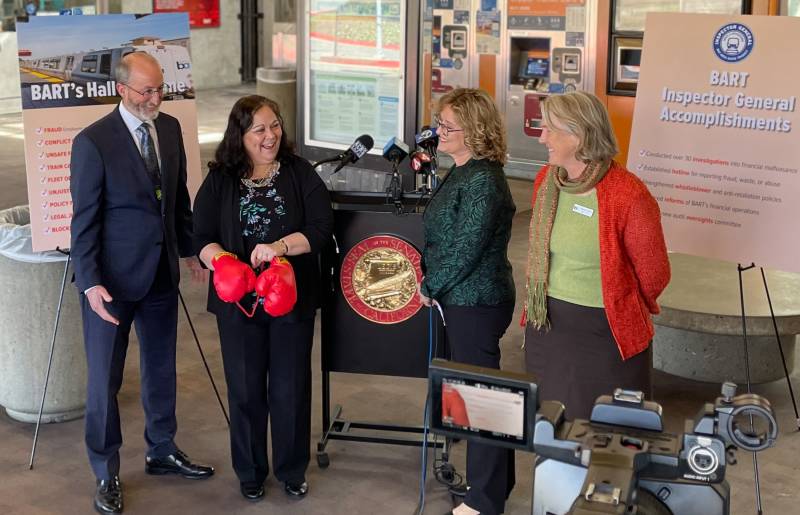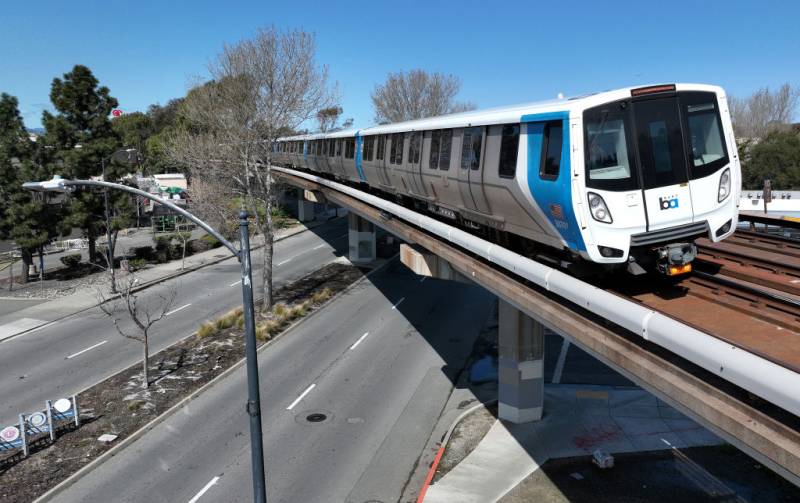Last week's announcement that BART intends to nearly triple the budget for its inspector general is unlikely to end the long-running battle over how much power the office, set up several years ago to guard against waste, fraud and abuse at the agency, should enjoy.
BART said last Wednesday that it had reached an agreement with the Metropolitan Transportation Commission that will increase the budget for its inspector general's office from $1 million to $2.7 million a year.
Under the agreement, $1.1 million of the new funds will come from regional bridge tolls. BART will provide the remaining $600,000.
Agency General Manager Bob Powers said in a statement the dramatic increase in funding shows the agency is committed to supporting the office.
The announcement came after a series of recent developments that showcased the continuing tension between BART and one of its toughest critics, East Bay state Sen. Steve Glazer, about whether the agency is being held sufficiently accountable for how it handles its $2.5 billion budget.
Glazer crafted the language that set up the BART inspector general's office as part of a 2018 ballot measure that raised bridge tolls on the Bay Area's seven state-owned bridges.

Gov. Gavin Newsom appointed former Palo Alto auditor Harriet Richardson to the newly created post of inspector general in 2019. But as detailed in an Alameda County Civil Grand Jury report (PDF) last year — and in the BART Board of Directors' response (PDF) to that report — there was significant friction between the agency and its newly designated watchdog.
The grand jury alleged that BART's board and management engaged in "a pattern of obstruction" by, among other things, interfering with a risk assessment the inspector general was conducting and by failing to cooperate with Richardson's effort to create a charter that would codify her office's powers and responsibilities.
The BART board's response rejected those findings and said any lack of cooperation was due to the agency's initial misunderstanding of the inspector general's role. The response also argued that Richardson had failed to follow up on delivering a charter proposal.
The dispute led Sen. Glazer to introduce a bill last year, SB 1488, that would have clarified and expanded the inspector general's role. The final bill, which included a host of amendments BART requested, passed with virtually no opposition.

